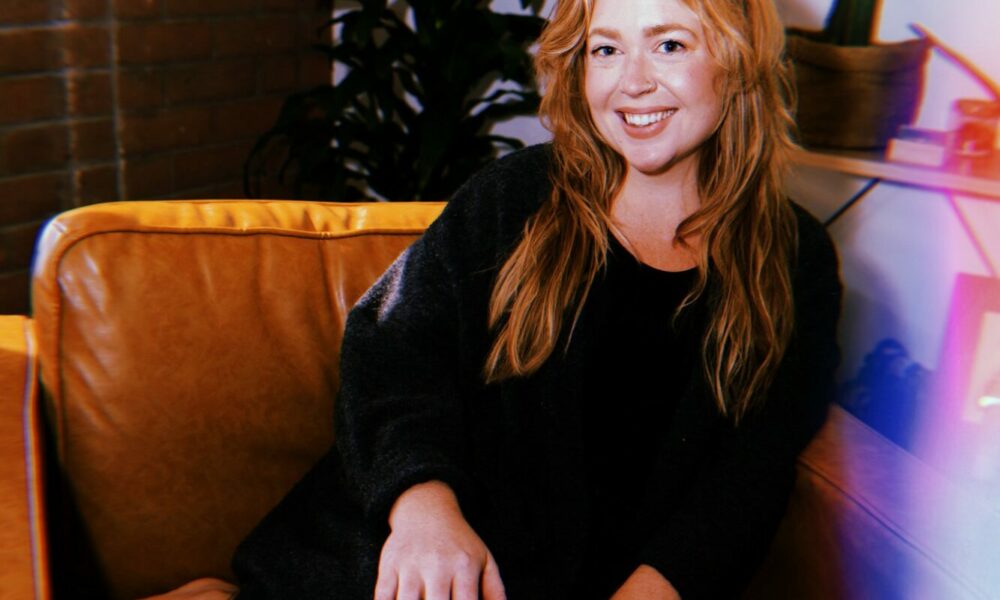

Today we’d like to introduce you to Caroline Pegram.
Hi Caroline, we’re thrilled to have a chance to learn your story today. So, before we get into specifics, maybe you can briefly walk us through how you got to where you are today.
In a sense, I’ve been primed for this work well before one should begin priming for the life of a trauma therapist.
My ‘introduction courses’ landed me utterly disconnected from myself–trying to feel okay by way of chaotic substance use, restrictive disordered eating, relentless body shame, and developing a personality steeped in codependent patterns.
Growing up, I experienced a pretty dysfunctional + unpredictable home life (even as I write this now, my brain says “But other people had it worse, so you probably shouldn’t include this in your statement.”) The truth is, my brand of trauma was just enough to overwhelm my little nervous system and leave me with a whole laundry list of trauma responses to sort out later in life.
This graduated to a teenager who had dysfunctional and unpredictable friendships. Then that teen grew into a young adult who entered into multiple dysfunctional and unpredictable romantic and sexual relationships. There are points in my life where I was a living, breathing tornado of a person. All the while, I was truly just trying to find stable ground.
Even during some of my most hellacious moments, I was still pretty good at performing the skills required by capitalism to not be seen as a dysfunctional human being. This performance of ‘being good’ dug my grave deeper and deeper until I felt like a shell of a human.
After a few especially hard hits that left me feeling a life-threatening sense of abandonment, I decided to get honest with myself about the level at which I was struggling.
This process involved me confessing to some very shameful behaviors of mine, putting down all drug and alcohol (which I was using heavily to manage feelings of impending doom + anxiety attacks), attending free mutual aid groups for 4 years, putting the little money I had towards the type of therapy I needed (trauma-sensitive + somatic-based) and journaling my way through this whole period of spiritual awakening. Plus, a lot of falling, crying, and asking for help.
My change process boiled down to me being vulnerable, leaning on community, practicing patience, and offering myself an unseemly amount of compassion.
While the pain and complexity of my life experiences are still very much a part of me, I’ve found ways to take these inner liabilities and grow them into my internal resources. These parts of my life are largely what allow me to show up in the ways that I do at Topaz Healing.
My academic and professional development grew alongside my healing journey. As I was becoming more aware of my wounded patterns, I pursued my undergraduate in social work – followed by earning my Master’s Degree in social work from Chapel Hill. My clinical experience began within addiction treatment settings where I had the honor of supporting some of those who are the most marginally oppressed by our society.
While supporting people in finding a sense of safety and healing, I observed the pervasiveness of developmental and childhood trauma that substance use was trying to protect. I became very curious about how to move closer to the roots of addiction and support healing from a deeper place. This exploration led me to somatic approaches, where we pay closer attention to the felt sense and wisdom of our bodies in addition to some more familiar talk therapy. Once I caught on to the untapped healing including body-based healing, I immersed myself in studying, training, and mentorship to better understand how to incorporate this approach into therapy.
Some of the coursework + learning outside of academia include:
- Trauma Center Trauma-Sensitive Yoga (300 hours) – Center for Trauma and Embodiment in Brookline, MA, with David Emerson
- Dismantling Racism (6 Days of Intensive) – Racial Equity Institute Greensboro, NC
- Yoga Teacher Training (250 hours) – Asheville Community Yoga
- Reiki II – Earthstar Spiritual Center Oak Ridge, NC
- EMDR Certified – EMDRIA Institute Charlotte, NC
- Herbalism– People’s Medicine School
- Dialectical Behavioral Therapy – Duke University Durham, NC
- Trauma and Release Exercise (TRE) – Yoga Calm Portland, OR
- Sensorimotor Psychotherapy – Sensorimotor Psychotherapy Institute
- Foundations in Embodied Ancestral Inquiry – Wildbody Somatics Jan 2023 – June 2023.
Thanks – so what else should our readers know about your work and what you’re currently focused on?
I am a somatic trauma therapist. My credentials include LCSW and TCTSY-F (Trauma Center Trauma-Sensitive Yoga Facilitator). I specialist in a relational approach, using my lived experience and in-depth learning about how trauma is carried and heals within the body. I integrate many approaches to meet each person where they are and center the human nervous system as the best guide to approaching/pacing work with trauma.
I am proud to say that within the 3 years of living in Salt Lake City, I have been voted as “Best Psychotherapist” in Utah two years in a row.
People tell me that what sets me apart from others is my authenticity, the felt experience that I know where people are coming from and understand them because the journey I’ve been on has been challenging, that others can tell I’ve done my healing work and allow others to not feel judged in some of the parts of themselves they’ve been taught to feel shame around.
What also sets me apart is my integrating systems theory and seeing a human in the context of their environment. This means we pay attention to systemic inequities, ancestral lineages that are held in our bodies, as well as many other interweaving dynamics that impact our experience of the world.
I consider myself to be a peer and a mentor.
Peer: a human currently experiencing some of the hardest parts of life.
Mentor: a human with lived and learned experience navigating the hardest parts of life.
I am dedicated to providing a space that is Anti-Racist, LGBTQQIAAP+ affirming, Fat Liberating, Sex Positive, and Disability Justice Oriented.
I am here to provide a trauma-sensitive container that encourages you to connect your inner dots, experience the vitality that comes from being embodied, and create new connections that encourage you to live within your values.
We will grow through intentional conversation and exploration of your felt physical sense while holding systems accountable for influencing the quality of your lived experiences.
By working together, we begin to understand where our voices truly lie by exploring our values + our felt senses in response to our current and past experiences.
At Topaz, we may choose to practice feeling emotions while in the moment, without giving into the impulse to change or “fix” them. These emotions are valid, important, and most likely here to offer a valuable message.
Together, we may explore how our unresolved patterns are replaying in an attempt to have a different ending to the story. In this process, we may choose to allow our childhood selves to be heard while tending to the questions of our current selves.
We will be invited to sit in the “both/and” nature of life to see what we can create out of the messiness we can find ourselves in. At Topaz, we use the word “our” quite intentionally – because to heal means to not be so alone with the weight that we are carrying.
Therapeutic Approaches: Somatic Healing | Trauma Sensitive Yoga | EMDR | Attachment Focused| Internal Family Systems | Trauma and Tension Release Exercise | Embodiment Practice | Mindfulness | ACT | Sensorimotor Psychotherapy| DBT | Integration | Expressive Arts |Transformative Justice
Plant-Based Medicine: We’ve studied with Rootwork Herbals: The People’s Medicine School. This school is a dynamic 6-month herbal certificate program offering students the chance to learn the foundations of herbalism from a decolonial framework that centers BIPOC and QT experiences. When working together, you may expect these values, properties, and allies to be woven into the therapeutic offerings we provide.
Trauma-Sensitive Somatics: At Topaz, we are informed by the embodiment as an integral approach to healing and have turned towards somatic practice as a way to integrate the body into therapy. The core elements that shape our trauma-sensitive and embodiment approach were developed at the Trauma Center at Justice Resource Institute in Brookline, Massachusetts, Trauma Center Trauma-Sensitive Yoga (TCTSY) is a program of the Center for Trauma and Embodiment at the Justice Resource Institute.
TCTSY is an empirically validated, clinical intervention for complex trauma or chronic, treatment-resistant post-traumatic stress disorder (PTSD). The TCTSY program qualified for inclusion in the National Registry of Evidence-based Programs and Practices (NREPP) database published by the Substance Abuse and Mental Health Services Administration (SAMHSA). In addition to yoga, TCTSY has foundations in Trauma Theory, Attachment Theory, and Neuroscience.
What we help with: Anxiety | Depression | Chronic Hyper-Vigilance | Chronic Fear | Emotional Regulation | Relationship Challenges | Disconnection from Self | Suicidal Ideation | Self Harm | Mood Swings | Chronic Lethargy | Feeling Frozen/Stuck |Detachment from Body| Insomnia | Financial Fears or Vigilance| Relationship with Food & Body
Chaotic Substance Use + Other Self-Soothing Behaviors: Our clinical experience has primarily been in settings that treat the co-occurrence of trauma and chaotic substance use + self-soothing behaviors (prevention, healing, and harm reduction/safety promotion). We have specific training to provide varying levels of assessment and care for substance use-related experiences, as well as providing familial support to those impacted by chaotic substance use.
Networking and finding a mentor can have a positive impact on one’s life and career. Any advice?
Continue to be a student of healing. Be a student of your healing journey as well as others. If something you are being told in professional/academic/clinical spaces does not feel right, you do not have to internalize that message in your practice.
Taking your most authentic version of yourself and allowing that to guide and be seen in your professional role is what will connect you to the people who need your type of healing the most. You’re allowed to be a human first before you are a therapist. Your humanity is what will allow others to feel safe with you.
Pricing:
- Sliding scale $100 – $220
Contact Info:
- Website: www.topazhealing.com
- Instagram: @topaz.healing
- Facebook: https://www.facebook.com/topaz.healing/
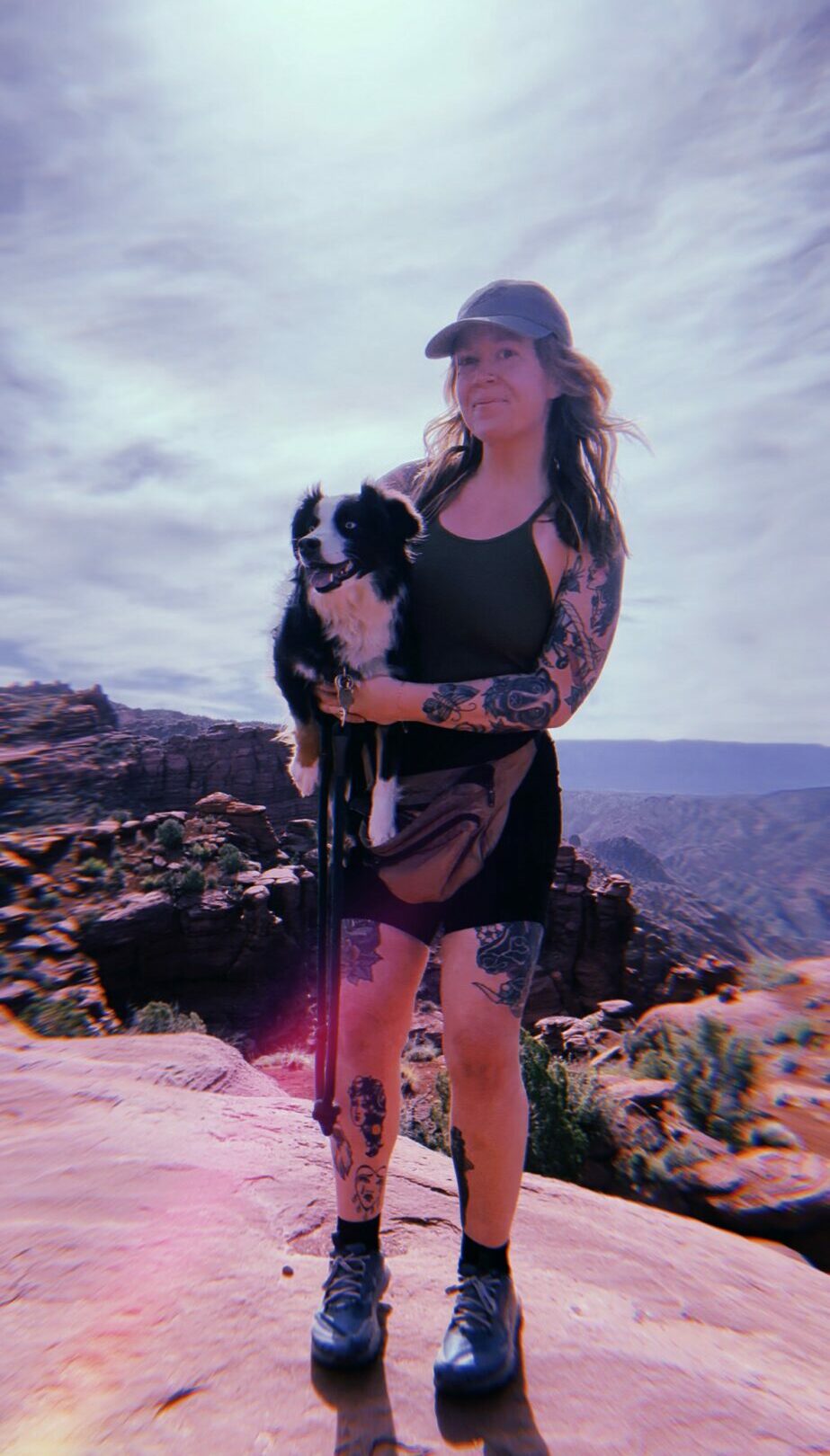
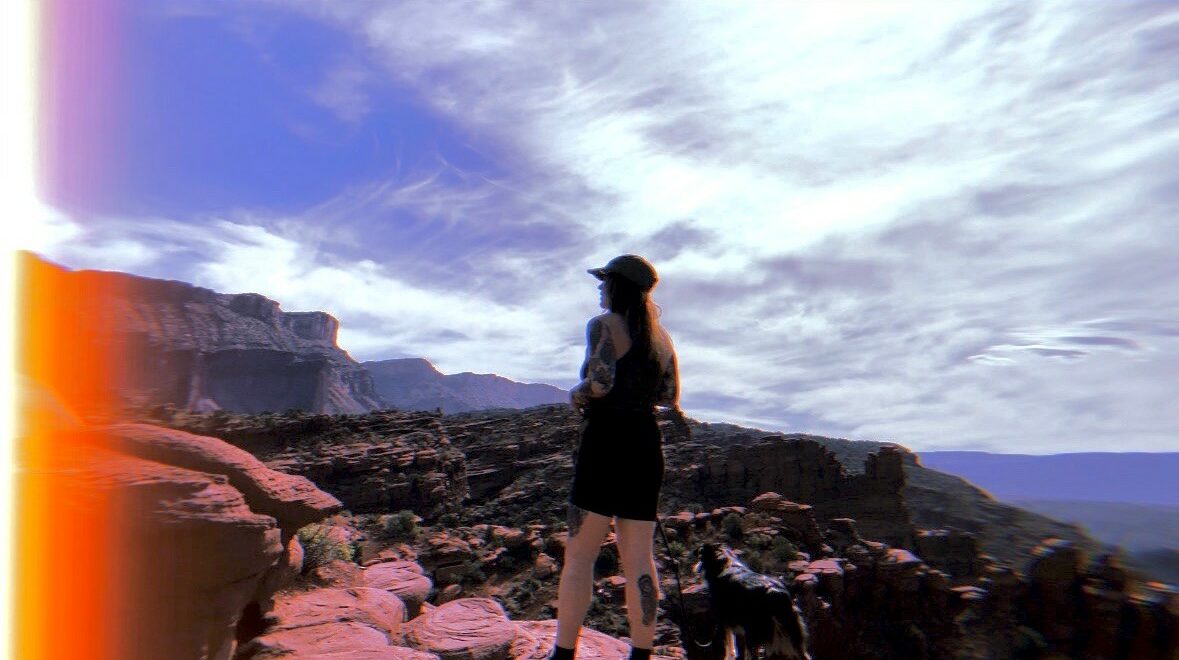
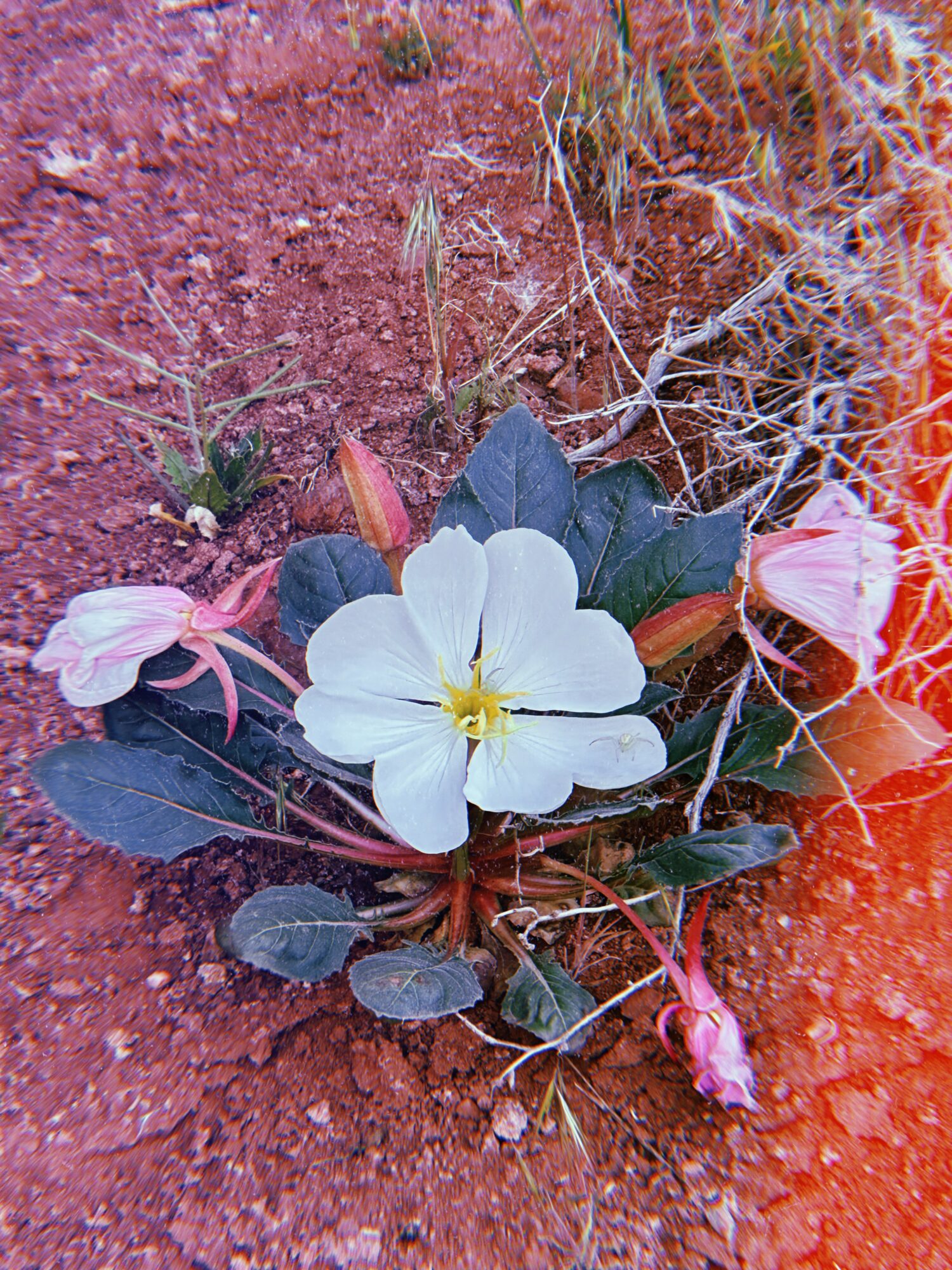


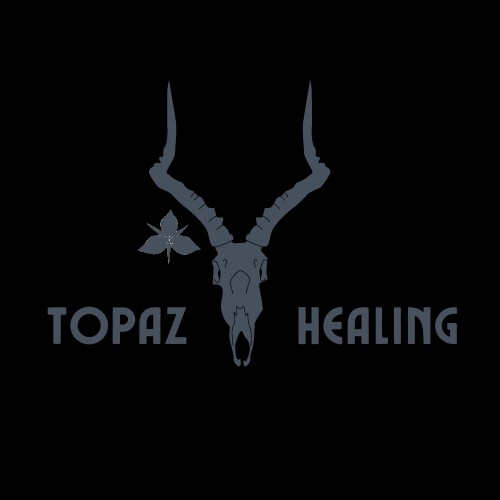 Image Credits
Image Credits
Becca Hofmann











